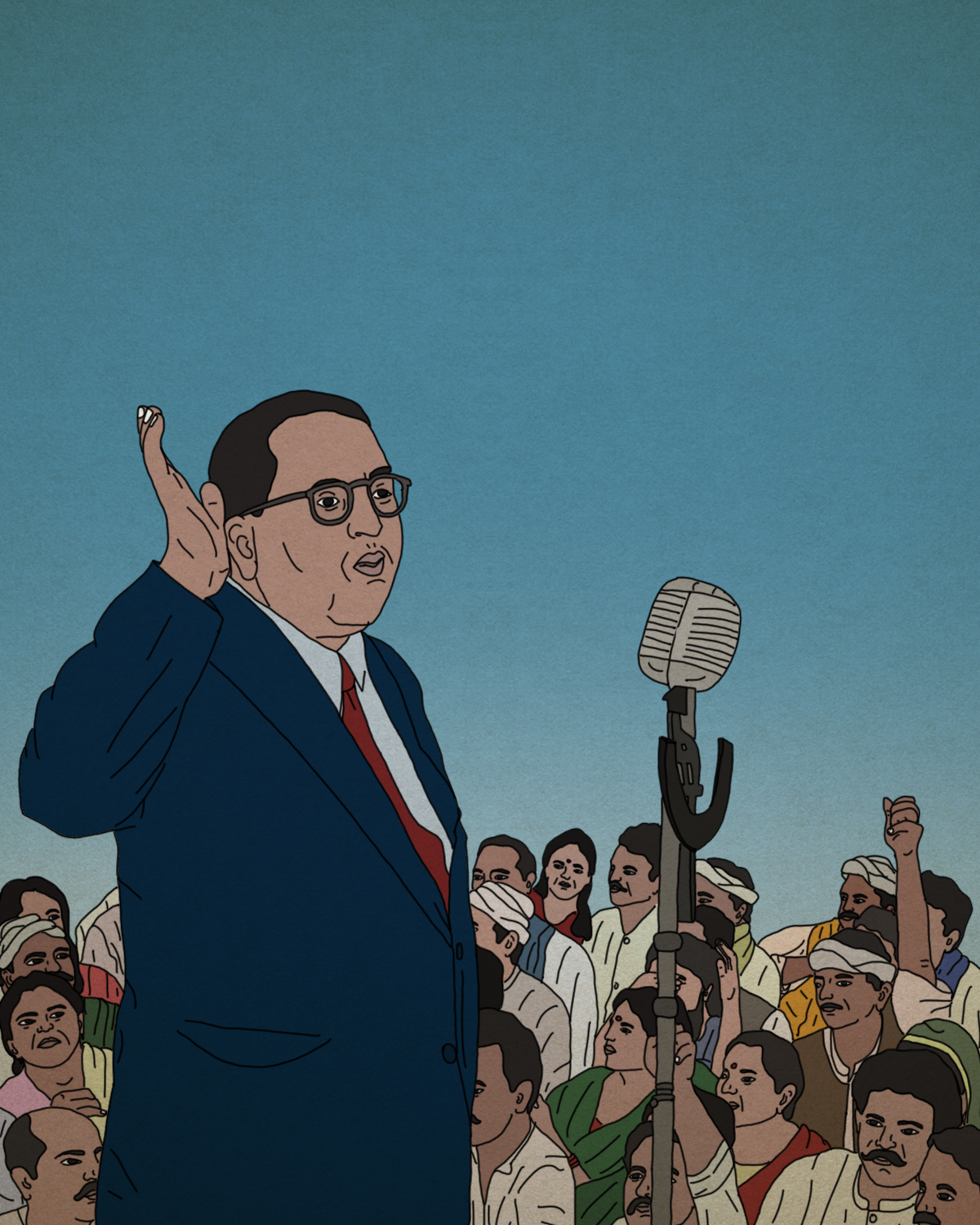
We also made history
Meenakshi Moon, Urmila Pawar and Wandana Sonalkar
Originally published in Marathi in 1989, Meenakshi Moon and Urmila Pawar’s We Also Made History, translated into English by Wandana Sonalkar, details the history of women’s participation in the dalit movement led by BR Ambedkar. The following excerpt is an interview with wrestler Shantabai Sarode who, due to her militant role in the movement, went to jail 18 times.
Living Ambedkar Jayanti: In conversation with Vira Sathidar
Vira Sathidar and Souradeep Roy
In this interview, Vira Sathidar, who is also the Convener of Indian People’s Theatre Association (IPTA), Nagpur, talks of his days in the Ambedkarite movement in Maharasthra, even before the formation of the Dalit Panthers. The actor, who received critical acclaim for his performance in Court, speaks on the need to reimagine the figure of the actor. An actor needn’t be a star, he can also be an activist.
Mahadev Sabane sings “Babanchya Ladkya Mulano”
“Karya portrays the tragedy of dalit lives — their exploitation by landowners & ascetics…”
Aravind Malagatti, Susheela Punitha and Githa Hariharan
On the third day after the death of Bangaravva, a solemn procession making its way towards the graveyard encounters a strange obstacle. The division between castes and communities comes to the fore as the panchayat struggles to pronounce justice. Translated into English by Susheela Punitha, Aravind Malagatti’s Karya unfurls the politics and power embedded within a dalit community. Writer Githa Hariharan speaks with Malagatti and Punitha on writing and translating the novella.
Dalit women as active particiapnts in Ambedkarite movement
Yogesh Maitreya
In Vidarbha—and I am sure in other regions of Maharashtra—the tradition of Bhim Palana, or Bhim’s cradle songs, are an antithesis to the children’s songs based on mythological themes. A Bhim Palana is written with the intent to educate children about figures such as Ambedkar, to create individuals and citizens who will uphold the notion of equality, liberty and fraternity in their social and personal life.
Remembering Raja Dhale: How the Dalit Panthers planned to burn holy books
J V Pawar
The Dalit Panthers came together to assert Dalit-Bahujan identity at a time when atrocities against them were on the rise in Maharashtra. Raja Dhale was one of the co-founders of the movement. The following excerpt from JV Pawar’s Dalit Panthers: An Authoritative History is an account of what happened after the publication of the Raja Dhale’s essay and the book burning that followed.
Huchangi Prasad reads Firing at the Heart of Truth
When I hid my caste
Baburao Bagul
Baburao Ramji Bagul was born in a poor dalit family in Nashik District, Maharashtra. His education stopped after he completed his matriculation. Despite his poverty, he continued to write and remained active in dalit movement. He is regarded as a pioneer of modern dalit and Marathi literature. When I Hid My Caste is a collection of short stories depicting the lives of the people on the margins — rebellious youth, migrants, sex workers, street vendors, slum-dwellers and gangsters — all impacted by the vicious caste system.
When Shabri discovered Savitribai’s diary
Sangeeta Mulay
Written by Sangeeta Mulay, Savitribai Phule and I (Panther’s Paw Publication) is the story of Shabri, a shy dalit girl from a deprived village who discovers a diary written by Savitribai Phule. The book details the evolution of the protagonist from a shy introvert who has faced discrimination and prejudice throughout her life to a confident feminist and activist. The following is an excerpt from the book.
Laxman Gaikwad discusses who are dalits and what is dalit literature
Laxman Gaikwad and ICF Team
In this conversation, Laxman Gaikwad, author of four novels in Marathi and a social activist says that all oppressed people, including women and tribals, are Dalits. While arguments are made to claim that literature written by tribals is not part of Dalit literature, writer Gaikwad argues that Denotified tribes are Dalits within Dalits.
Achintya Biswas makes a short survey of Bengali dalit literature
Achintya Biswas and ICF Team
Achintya Biswas, Professor of Bengali in Jadavpur University, and one of the founders of the Bangla Dalit Sahitya Sanstha, gives a brief overview of Dalit literature in Bengali. He has also been editorially involved with the influential magazine Chaturtho Duniya, and explains how the magazine reshaped the literary history of Bengali, especially with their revaluation of the writer Advaita Mallabarman. Since he also teaches at Jadavpur University, Biswas speaks of the space for discussions centred around caste in Jadavpur University
The dalit identity in Indian cinema
Pa. Ranjith and Newsclick
Newsclick talks to Tamil filmmaker Pa. Rajnith, the director of Madras and Kaala, among other films, which have gained critical acclaim as well as commercial success. His films are notable for their exploration of caste discrimination. Ranjith talks to Bhasha Singh about his identity as a dalit filmmaker and how caste has followed him everywhere.




